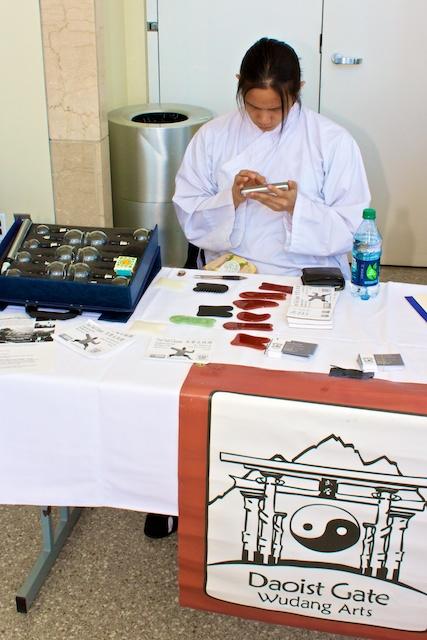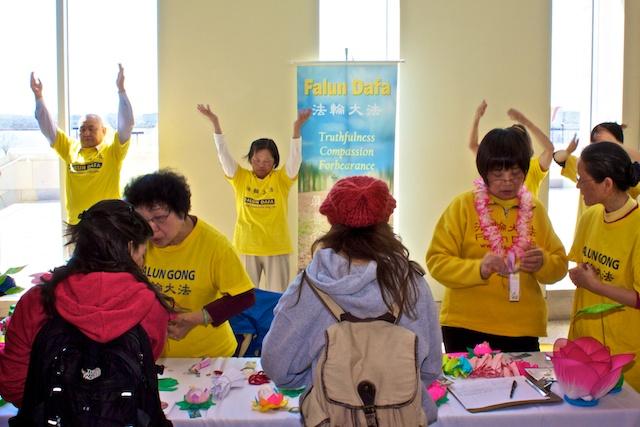Do you know which molecule conveys the information of heredity in humans? Not even a third of American adults know that it is DNA. How about an easier one: what is a molecule? You might be surprised to learn that the majority of Americans have no clear idea. A stunning one in five even think the sun revolves around the Earth, not the other way around.
These facts attest to the crisis of scientific illiteracy in the United States, and the stakes in this contest couldn’t be higher. Familiarity with the basic ideas and methodology of science is no longer a luxury but a necessity if Americans are to innovate the industries of tomorrow. Without a strong scientific knowledge, we will never be able to address the grave environmental problems that imperil life on Earth. Even participating in the discussion of matters that profoundly affect you is impossible without the intellectual preparation of a basic science education.
UMass Boston has taken a bold step in addressing the crisis of scientific illiteracy in the U.S. by prioritizing science education in its 25-year Master Plan. The $155 million Integrated Sciences Complex opens for classes next year. So it was with some bewilderment and apprehension that I learned the university was hosting the “Spring Into Wellness Complementary and Alternative Medicine Health Fair” on April 11 to showcase “alternative” treatments that are not recognized or accepted by science.
The events was organized by University Health Services and the Wellness Center organized the fair, a student-run organization “dedicated to fostering health choices among the undergraduate population.” Some representatives from legitimate health organizations promoted smoking cessation, regular exercise, and other smart lifestyle modifications. These were not instances of “alternative” medicine, in that they based their recommendations on scientifically determined evidence. The free massages did no harm, either.
The majority of the vendors at the fair, however, were making unproven, un-provable, or unsupported claims for their therapies. Worse, they were based on ideas and assumptions that contradict basic principles of modern physics, chemistry, biology and medicine. In short, they were promoting pseudoscience.
“Therapies” included color energy therapy, dowsing, spiritual alignment, homeopathy, crystal healing and reflexology, among others. As diverse and incompatible as these appear to be, philosophically they have much in common: the argument from antiquity (something is effective because it is old), the argument from popularity (something is effective because it is popular), the naturalistic fallacy (something is effective because it is “natural”), and a sort of vitalistic humoralism (disease results from an imbalance of vital or spiritual forces). Each of these ideas has been rejected by modern science and medicine.
Reiki, the most over-represented alternative modality, is a good example. In a typical session, a Reiki practitioner is said to transfer “universal life force energy” from his or her hands into your body to remedy illness. There is no evidence that such energy exists, or that Reiki is an effective way of treating any medical condition. One vendor selling Reiki instruction courses assured me it was easy to learn, saying “I just certified an eight-year-old last month and now he’s treating people!”
A seeming panacea device called the BioMat proved the most bizarre and upsetting feature. Claiming to “remove toxins,” “revive cells” and “enhance immune function” with the help of “infrared rays,” “negative ions,” and “amethyst crystals,” it looked like a heating pad with rocks in it. When I balked at the $1500 price tag, the rep insisted that the BioMat “also cures stage four metastatic cancer.” I bit my tongue and walked away. Outrageous claims like this, sold by a scientific-sounding sales pitch, are what distinguish the silly and benign from the irresponsible and dangerous.
When you don’t understand science you can’t distinguish between plausible claims about reality and unreasonable, pseudo-scientific ones, because they all sound the same. It is science education that allows one to be inoculated against nonsense, and it is what promotes participation in democratic dialogue. And it is science education that empowers us to make rational and responsible decisions with regard to our health, the health of loved ones, and the health of the planet. Next year, let’s celebrate our new Science complex, and not have another Complementary and Alternative Medicine Health Fair.
Feel that healing energy!


